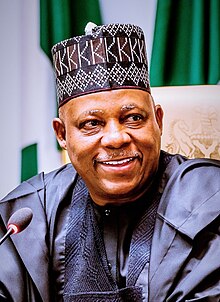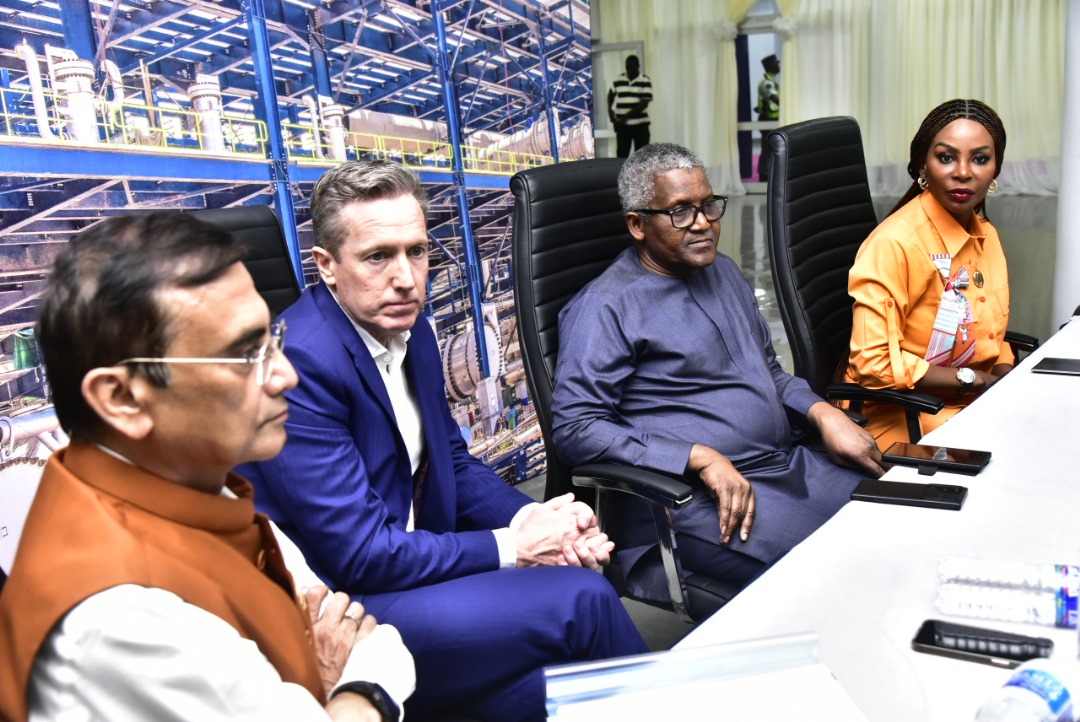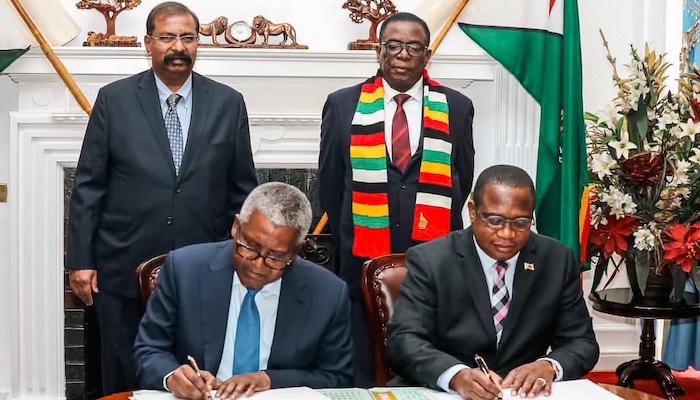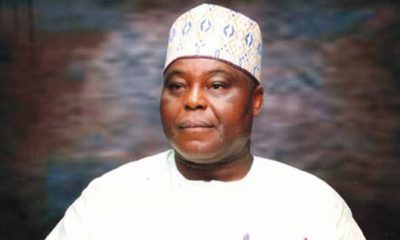Business
VP Shettima to REA: Your PR is poor, Nigerians need to know what you are doing to improve electricity

Vice President Kashim Shettima has commended the Rural Electrification Agency (REA) for its efforts at improving access to electricity by Nigerians.
Shettima however scored the agency low in terms of publicity, noting that it has performed poorly in creating awareness and keeping Nigerians abreast with ongoing efforts to address the electricity deficit in the country.
He said, “I am afraid you need to overhaul your PR management team. People need to know – Nigerians ought to know.
“At one point in time, we were getting 5 megawatts from the grid for Borno State. Just one plant is generating 12 megawatts for the University of Maiduguri and the Teaching Hospital. But you have not been publicizing your activities. So, I will ask you to look at your media team and see to it that you get the loudest decibel in the social media space and the traditional media”.
Vice President Kashim Shettima implored the Agency to double efforts in the bid to accelerate Nigeria’s journey towards universal electricity access and ensure Nigerians get more access to power supply.
To that end, Shettima granted REA’s request to enter into a partnership with the National Economic Council (NEC) in order to have access to state governors and engage them in the drive towards electrifying communities across the countries.
This is just as the agency said it has secured a grant of $750 million from the World Bank and African Development Bank (AfDB) for rural electrification projects across Nigeria.
Senator Shettima gave the charge on Friday when a delegation from REA, led by its Managing Director/CEO, Abba Abubakar Aliyu, made a presentation on the National Electrification and Implementation Plan (NESIP) to the Vice President in his office at the Presidential Villa, Abuja.
“To me, I appreciate you, I adore you, I respect you, but we need to think outside the box and we need to think big,” VP Shettima who is Chairman of NEC told the REA delegation, assuring them of maximum support from the Council and the state governors.
“The most startling revelation of this presentation has to do with the correlation between access to electricity and financial inclusion. Hence, I believe our job is cut out for us, and I want to assure you that we are going to partner with your agency so that we can meet the aspiration of the Nigerian people for access to electricity,” he added.
Urging REA to double efforts in giving more Nigerians access to electricity, the Vice President commended the agency for doing an outstanding job, taking into cognizance its efforts in several other sectors.
Granting the agency’s request to collaborate with NEC and the state governors for the electrification project, VP Shettima asked the management of REA to engage the Special Adviser to the President on NEC and Climate Change, Rukaiya El-Rufai, in order to make a formal presentation in one the NEC meetings.
This, he said, is necessary “so that the governors too, who are very essential in our drive towards electrifying our communities, can have a buy-in from your submissions.”
Earlier in his presentation, the Managing Director of the REA, Abba Abubakar Aliyu, listed four main sources of funding for the agency namely the World Bank, the African Development Bank (AfDB), and Electricity Market, which is the excess revenue of the liquidator and grants which comes from partnership with international development agencies where funds are normally provided to develop different models and concepts in the country.
Aliyu noted that before his appointment as the Managing Director of REA, he was heading the project management unit that was implementing a $550 million REA project funded by the World Bank and AfDB.
He said the agency succeeded in securing another approval for another grant of $750 million, explaining that the biggest public sector-funded project and implementation is about to commence.
Business
Dangote Refinery to supply 1.5bn litres of petrol monthly

….Writes NMDPRA, Engages Marketers to Stabilise Fuel Market
Photo caption: L R: Chief Executive Officer, Dangote Fertiliser Limited, Vishwajit Sinha; Chief Executive Officer and Managing Director, Dangote Petroleum Refinery, David Bird; President and Chief Executive, Dangote Industries Ltd, Aliko Dangote; Managing Director and Chief Executive Officer, South South Development Commission, Usoro Akpabio, during the visit of SSDC members to the Dangote Petroleum Refinery and Fertiliser Plant in Lagos on Sunday, November 30, 2025.
Dangote Petroleum Refinery has announced plans to supply one billion five hundred million litres of Premium Motor Spirit (PMS) monthly to the Nigerian market in December 2025 and January 2026, a move aimed at ensuring uninterrupted nationwide fuel availability through the festive season and into the New Year.
President and Chief Executive of Dangote Industries Limited, Aliko Dangote, disclosed the plans at the weekend, noting that the refinery will make available 50 million litres of PMS daily beginning December 1.
“In line with our commitment to national wellbeing, and consistent with our track record of ensuring a holiday season free of fuel scarcity, the Dangote Petroleum Refinery will supply 1.5 billion litres of PMS to the Nigerian market this month. This represents 50 million litres per day. We are formally notifying the Nigerian Midstream and Downstream Petroleum Regulatory Authority (NMDPRA) of this commitment. We will supply another 1.5 billion litres in January and increase to 1.7 billion litres in February, which translates to about 60 million litres per day,” Dangote said.
Photo caption: L R: President and Chief Executive, Dangote Industries Ltd, Aliko Dangote; Managing Director and Chief Executive Officer, South South Development Commission, Usoro Akpabio, during the visit of SSDC members to the Dangote Petroleum Refinery and Fertiliser Plant in Lagos on Sunday, November 30, 2025.
Speaking during a visit by the South-South Development Commission (SSDC) to the refinery and the Dangote Fertiliser complex, he stated that the facility currently has adequate stock and is producing between 40 and 45 million litres of PMS daily. He added that the daily supply of 50 million litres should dispel long-standing claims that domestic refineries lack the capacity to meet national demand.
Dangote also revealed ongoing engagement with petroleum marketers to strengthen distribution systems, including expanding the use of CNG-powered haulage.
“Our priority is to ensure Nigeria receives the products it needs. This is not driven by profit motives; it is about guaranteeing the availability of essential energy products. It is similar to the transformation we delivered in the cement sector,” he added.
He further noted that the refinery is progressing with its expansion plan to reach a capacity of 1.4 million barrels per day. More than 100,000 workers are expected to be involved in the expansion of both the refinery and the fertiliser complex. Dangote emphasised that the Group remains committed to its vision, driven by the strong public support for the company’s role in shaping Nigeria’s economic development.
During the visit, the Managing Director of SSDC, Usoro Offiong Akpabio, commended Dangote’s leadership and his continued contribution to strengthening Nigeria’s industrial capability, national energy security and long-term economic competitiveness.
She described the South-South region as Nigeria’s natural energy corridor, with vast crude oil reserves, gas infrastructure, maritime assets, agro-industrial activity and emerging industrial clusters. She noted that deeper collaboration between the region and the Dangote Group could unlock opportunities in product distribution, CNG infrastructure, petrochemicals, agriculture, and employment creation.
Akpabio added that such partnerships would advance the Federal Government’s energy stability agenda and position the South-South as a strategic growth hub for the Dangote Group.
“As the statutory development body for the South-South, SSDC is mandated to drive regional economic development, infrastructure integration, human capital advancement, and private-sector–led growth. In this regard, we stand prepared to support State-level policy and regulatory support for Ease-of-doing-business across our six states. Enabling environments for Dangote Group’s expansion into strategic sectors such as gas processing, agro-industrial value chains, renewable energy, logistics, and export-oriented manufacturing,” she said.
In a letter from the refinery’s Managing Director, David Bird, to the Authority Chief Executive of the NMDPRA, the company reaffirmed its readiness to host NMDPRA officials onsite at the refinery from December 1st to verify and publish its daily supply volumes. The refinery also sought the Authority’s support to ensure unhindered importation of crude, feedstocks and blending components, as well as smooth vessel loading for product evacuation.
“In the spirit of full transparency to the public we are willing to publish our daily production and stock volumes (online and print media),” Bird stated. “We seek the full support of NMDPRA to allow Dangote refinery to import our crude, feedstocks and blending components unhindered as well as support the lifting of our products by vessel. We continue to experience delays in vessel clearance which impacts not only the refinery operations but also our customers, adding unnecessary costs and inefficiencies”.

By Bonaventure Phillips Melah
Photo caption: L R: Chief Executive Officer, Dangote Fertiliser Limited, Vishwajit Sinha; Chief Executive Officer and Managing Director, Dangote Petroleum Refinery, David Bird; President and Chief Executive, Dangote Industries Ltd, Aliko Dangote; Managing Director and Chief Executive Officer, South South Development Commission, Usoro Akpabio, during the visit of SSDC members to the Dangote Petroleum Refinery and Fertiliser Plant in Lagos on Sunday, November 30, 2025.
Dangote Petroleum Refinery has announced plans to supply one billion five hundred million litres of Premium Motor Spirit (PMS) monthly to the Nigerian market in December 2025 and January 2026, a move aimed at ensuring uninterrupted nationwide fuel availability through the festive season and into the New Year.
President and Chief Executive of Dangote Industries Limited, Aliko Dangote, disclosed the plans at the weekend, noting that the refinery will make available 50 million litres of PMS daily beginning December 1.
“In line with our commitment to national wellbeing, and consistent with our track record of ensuring a holiday season free of fuel scarcity, the Dangote Petroleum Refinery will supply 1.5 billion litres of PMS to the Nigerian market this month. This represents 50 million litres per day. We are formally notifying the Nigerian Midstream and Downstream Petroleum Regulatory Authority (NMDPRA) of this commitment. We will supply another 1.5 billion litres in January and increase to 1.7 billion litres in February, which translates to about 60 million litres per day,” Dangote said.

Photo caption: LR: President and Chief Executive, Dangote Industries Ltd, Aliko Dangote; Managing Director and Chief Executive Officer, South South Development Commission, Usoro Akpabio, during the visit of SSDC members to the Dangote Petroleum Refinery and Fertiliser Plant in Lagos on Sunday, November 30, 2025.
Speaking during a visit by the South-South Development Commission (SSDC) to the refinery and the Dangote Fertiliser complex, he stated that the facility currently has adequate stock and is producing between 40 and 45 million litres of PMS daily. He added that the daily supply of 50 million litres should dispel long-standing claims that domestic refineries lack the capacity to meet national demand.
Dangote also revealed ongoing engagement with petroleum marketers to strengthen distribution systems, including expanding the use of CNG-powered haulage.
“Our priority is to ensure Nigeria receives the products it needs. This is not driven by profit motives; it is about guaranteeing the availability of essential energy products. It is similar to the transformation we delivered in the cement sector,” he added.
He further noted that the refinery is progressing with its expansion plan to reach a capacity of 1.4 million barrels per day. More than 100,000 workers are expected to be involved in the expansion of both the refinery and the fertiliser complex. Dangote emphasised that the Group remains committed to its vision, driven by the strong public support for the company’s role in shaping Nigeria’s economic development.
During the visit, the Managing Director of SSDC, Usoro Offiong Akpabio, commended Dangote’s leadership and his continued contribution to strengthening Nigeria’s industrial capability, national energy security and long-term economic competitiveness.
She described the South-South region as Nigeria’s natural energy corridor, with vast crude oil reserves, gas infrastructure, maritime assets, agro-industrial activity and emerging industrial clusters. She noted that deeper collaboration between the region and the Dangote Group could unlock opportunities in product distribution, CNG infrastructure, petrochemicals, agriculture, and employment creation.
Akpabio added that such partnerships would advance the Federal Government’s energy stability agenda and position the South-South as a strategic growth hub for the Dangote Group.
“As the statutory development body for the South-South, SSDC is mandated to drive regional economic development, infrastructure integration, human capital advancement, and private-sector–led growth. In this regard, we stand prepared to support State-level policy and regulatory support for Ease-of-doing-business across our six states. Enabling environments for Dangote Group’s expansion into strategic sectors such as gas processing, agro-industrial value chains, renewable energy, logistics, and export-oriented manufacturing,” she said.
In a letter from the refinery’s Managing Director, David Bird, to the Authority Chief Executive of the NMDPRA, the company reaffirmed its readiness to host NMDPRA officials onsite at the refinery from December 1st to verify and publish its daily supply volumes. The refinery also sought the Authority’s support to ensure unhindered importation of crude, feedstocks and blending components, as well as smooth vessel loading for product evacuation.
“In the spirit of full transparency to the public we are willing to publish our daily production and stock volumes (online and print media),” Bird stated. “We seek the full support of NMDPRA to allow Dangote refinery to import our crude, feedstocks and blending components unhindered as well as support the lifting of our products by vessel. We continue to experience delays in vessel clearance which impacts not only the refinery operations but also our customers, adding unnecessary costs and inefficiencies”.
Business
Dangote expands presence in Africa, signs $1b investment deal for cement, energy in Zimbabwe

Africa’s richest man and the Chief Executive Officer (CEO) of Dangote Group, Alhaji Aliko Dangote, has signed a deal to invest over $1 billion in cement and energy in Zimbabwe.
Dangote spoke to journalists after meeting with Zimbabwean President Emmerson Mnangagwa in Harare on Wednesday.
The billionaire businessman said he signed an agreement on behalf of Dangote Group to build cement and power plants as well as a fuel pipeline.
“… we have just actually signed an agreement between Zimbabwe and Dangote Group to do various investments in various sectors, some of which, of course, border on cement, some of it in power generation, and some of it in pipelines to bring petroleum products,” he said.
Dangote said the investment will be worth over $1 billion “because of the pipeline”, noting that the group is planning a couple of other investments in the country.
Speaking on governance in Zimbabwe, he said Mnangagwa transformed the economy, adding that “there is a lot of transparency”.
“And also, when you look at what His Excellency has actually done in terms of turning the economy around, that really gave us the confidence that this is the right time for us to come and invest,” Dangote said.
“And, you know, it’s like somebody, when you pass the exam, people have to give you a good mark. So His Excellency has passed that exam.”
Dangote previously expressed interest in similar investments in Zimbabwe in 2015, including plans for his Dangote Cement Plc to build a $400 million plant with a processing capacity of 1.5 million tons annually.
With the latest deal signing, Dangote is adding Zimbabwe to his list of investment destinations across the continent, which includes Ethiopia and Zambia.
On October 5, the Dangote Group commenced the construction of a $2.5 billion fertiliser plant in Gode, Ethiopia.
The project, a joint venture between the conglomerate and the Ethiopian Investment Holdings (EIH), is expected to have an annual production capacity of three million metric tonnes of urea, positioning it among the largest fertiliser complexes in the world.
Dangote Cement had also built a 1.5 million tonnes per annum (mta) plant in Zambia. The plant began operations in the second quarter (Q2) of 2015, according to information on the company’s website.
-

 News2 years ago
News2 years agoBreaking: Tinubu’s authentic ministerial nominees
-

 News9 months ago
News9 months agoSenate to speed up conclusion of Nigeria Forest Security Service Bill
-

 News2 years ago
News2 years ago“Anytime we want to kill terrorists, President would ask us to take permission from France but they were killing our soldiers-” Niger Republic coup leader
-

 News2 years ago
News2 years ago“I’m leaving the Catholic church because Bishop Onah is oppressing me,” says Okunerere
-

 News2 years ago
News2 years agoRadio Nigeria’s veteran broadcaster Kelvin Ugwu dies three months after retirement from service
-

 News2 years ago
News2 years agoDokpesi and the Gazebo Mystique
-

 News2 years ago
News2 years agoTsunami: Tinubu orders dissolution of managements, boards of MDAs, to sack all Buhari’s political appointees
-

 News2 years ago
News2 years agoPersons against Allagoa’s reforms behind protests at NSITF
